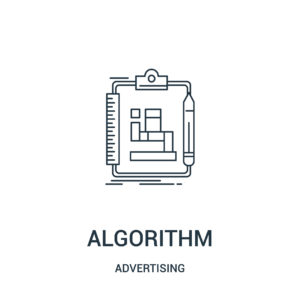
There are upheavals aplenty happening all around us at the moment and, as normal, when we’re in the midst of turmoil it’s really hard to assimilate all of the changes. Democratic governments right across the globe are becoming more like dictatorships – curtailing parliament, postponing elections, silencing opposition parties, limiting freedoms and expanding surveillance of their citizens – all, so far, without much resistance.
There is increased scrutiny in other areas too. The likes of Facebook and Google are tracking our specific movements in the cause of contact tracing. Data protection rights under the much-vaunted GDPR appear to be side-lined or worse.
And all the while, algorithmic advertising continues to assess where we’ve tended to click and to guess where we might like to click and to prompt where we actually do click – thereby, manipulating our purchases and our preferences like never before.
The clever software tracks our top searches on Amazon. Before Covid-19, we searched most for phones, phone chargers, phone cases, audio books and Lego. Can you believe it? Lego after all these years!! But a computer algorithm doesn’t have a soul it just lines up the top-paying advertisements and tickles our fancy and our digital wallet.
By April 2020, the world had changed! Our searches shifted dramatically to toilet rolls, face masks, hand sanitizers, paper towels, viral sprays and wipes. Hey presto! Cue the advertising for those items. The computer software is able to switch the focus much quicker than any marketing executive or distribution manager. There is no way that any human being could have predicted or foreseen these new preferences – and it would have taken a human, weeks or even months to identify and confirm our changed behaviours. The ripple effects across the supply chains are almost instantaneous thanks to advertising algorithms. Or are they?
The artificial intelligence (AI) behind algorithmic advertising is complex but it essentially spots patterns. The same intelligence is used in fraud detection. Humans are very poor and inputting random numbers. So, if creative accountants were thinking of fiddling the books by changing a few numbers they would have to make sure they’re absolutely random. Otherwise, AI will quickly spot the pattern. But, paradoxically, the software code was written to capture normal human behaviour. During a global pandemic (or other large-scale mayhem) humans do not, indeed cannot, behave as normal.
We have become accustomed to AI in all its guises and we, undoubtedly, would be lost without it. In many ways we are completely dependent on it – just think mobile phones, tablets, PCs, etc. But the dependence works both ways!! Covid-19 has altered our behaviour beyond recognition. But these changes have altered how AI reacts and this, in turn, has the knock-on effect of changing how we respond.
Financial regulators across Europe are concerned about the sudden dramatic increase in the number of consumers opening up trading accounts. It seems the culprit is an algorithm that issues investment recommendations based on the sentiments expressed in the letters’ pages of newspapers. Really!!

